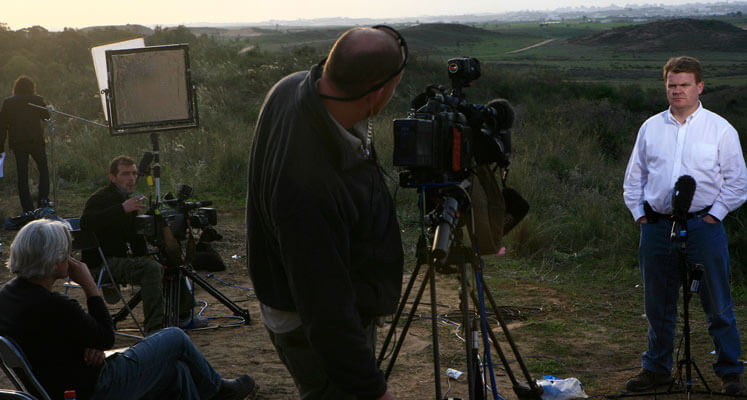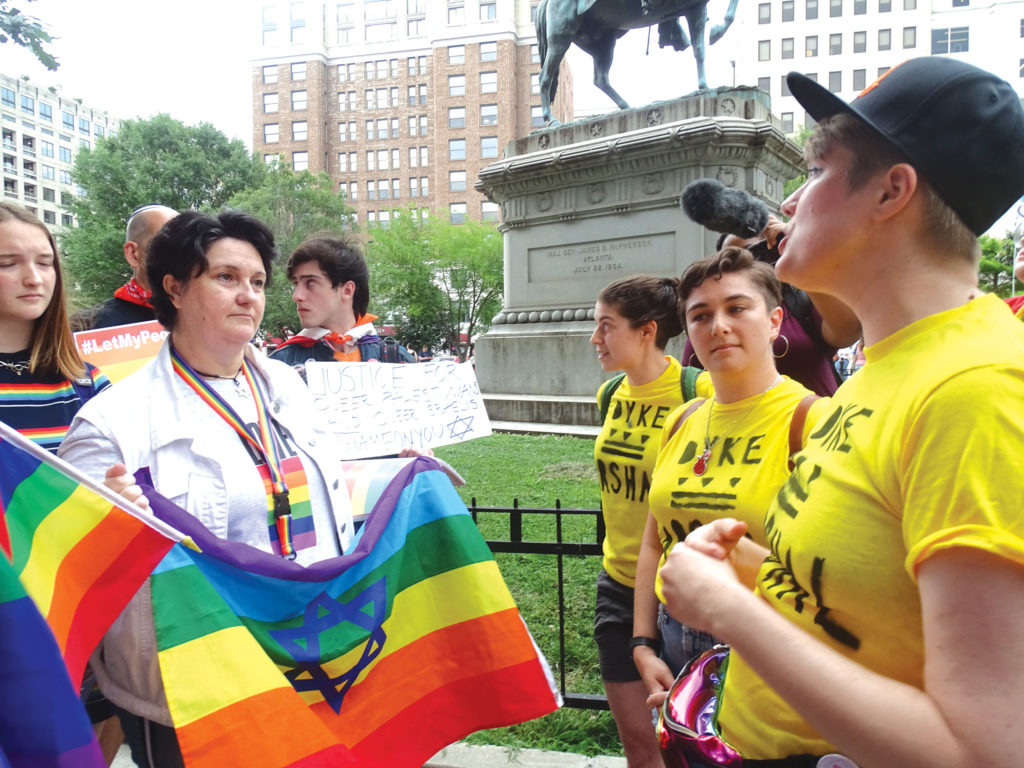Australia/Israel Review
Essay: You’re all Israel now
Nov 26, 2020 | Matti Friedman

The Jewish state and “Cancel Culture”
This year many people have discovered that liberal life and institutions in the West are in the grip of something resembling a new religion. Anyone following the goings-on of the past few months won’t need a recap of the attempted “cancellations” of scholars and scientists for heresies, the purge of editors for running the wrong op-ed, or the excommunication of J.K. Rowling.
Adherents of the thought system vaguely described as “woke” believe themselves to be fighting evil in the name of justice. They share a hierarchy of good, a lingo, purity tests, and a stark division of the world into friend and foe, all of which borrow heavily from religious modes of thought. But one of the most obvious signs that religion is in play, and not merely empirical observation or political criticism, is the way this ideology has focused and amplified the condemnation of Jews.
All of this has made me think differently about my experience as a reporter in Israel a decade ago, and particularly about an essay I wrote in 2014 for Tablet, which was one of the first publications to pick up on these trends. That essay, “An Insider’s Guide to the Most Important Story on Earth,” and a second one that appeared in The Atlantic, described the replacement of journalism here by activism, the subjugation of objective description to higher ideological truth, and the manufacture of politically driven morality plays in the guise of news. I took this to be a problem related to, and perhaps limited to, perceptions of Jewish people and of Israel.
From the vantage point of 2020, that understanding was far too narrow.
To pull a metaphor from this strange moment: I thought I’d seen the outbreak, when I was really just hanging out in the wet market. The Israel story was just a formative stage in the evolution of a more ambitious set of ideas. Israel was an early target for adherents of the movement for social justice, but it wasn’t just that. It was a place to manufacture a mobilising mythology.
Upon gaining admission to the tribe of Western journalists in Jerusalem in 2006, I found that it wasn’t enough – or necessary, or sometimes even desirable – to be knowledgeable about the region or to speak its languages. The important thing was adopting a creed, one which seemed strange to me then but is widely familiar now.
This outlook included a dim view of America; sympathy for all international organisations; an aversion to fervent Christianity and a healthy respect for fervent Islam; a considerate attitude toward despotic regimes from China to Iran, which are not “the problem”; the idea that the moral high ground has something to do with skin colour; the belief that while groups like Hezbollah, Hamas, and the Muslim Brotherhood might sometimes go too far, they do have a point; and the idea that the world would probably be improved if Jewish sovereignty could somehow be reduced to zero percent from the current high of 0.01 percent.
The key credo, however, was that recognising complexity was desirable only within the tenets of the belief system. Outside of those tenets, complexity was not just unwelcome but wrong. That is, you could discuss how evil the Israelis are, or Republicans, or “nationalists” from India or France, or oil companies, or anyone on the approved list of wrongdoers – but not suggest they might be right, or their opponents mistaken. The rigours of reporting, in other words, were abandoned for the simple pleasures of the sermon.
I’m lucky enough to have grown up with traditional religion, and I’ve experienced religious behaviour from moderate to extreme. What I was seeing in the mainstream press was a move from rational observation into a kind of moral judgment that I knew from other parts of my life. The guiding idea was no longer to understand what was going on; there was nothing to understand. We knew who was right and who was wrong, and it remained only to anathematise the bad guys so far into disrepute that even the act of trying to understand them would be a kind of sin.
To achieve this effect, the news narrative in Israel was constructed, without undue difficulty, with tricks of storytelling and framing: pretending the conflict is one between Israelis and Palestinians and not a much broader Middle Eastern war; pretending the Palestinian national movement merely wants a state beside Israel; dismissing Israeli attempts to solve the conflict on reasonable terms; erasing the actions of Israel’s opponents so Israel’s own actions and fears seem irrational or duplicitous; and suggesting the Jewish instinct for self-preservation in the Middle East is “right-wing” while the Islamist war against Jews or the Iranian drive for regional hegemony are somehow about “human rights.”
The ideology not only puts forward its own explanation for things but rules out any other explanation. If you point out that none of this is true, you’re whitewashing oppression and will be tarred as a racist, as I eventually was, joining a list that was less illustrious at the time than it is now.
Today all of this seems almost wearily familiar from “cancel culture.” But it wasn’t widely familiar a decade ago, because in many ways Israel was patient zero. The successful creation and promotion of the Israel story transformed a real country into something so dangerous and disruptive to the desired order that it had to be cancelled – an aspiration that has actually become a staple of politics on the left, and is now aired in the press as if it were completely rational.
It’s the same thinking behind the idea that an op-ed by a right-wing senator is too dangerous to be published in a newspaper of record, or that it’s necessary to pulp books in which a human being of one ethnic background imagines how the world might appear to a human being from another. The creation of the malevolent “Israel” of the news, and the subsequent push to render an entire country beyond the pale, created a pattern that has been replicated against targets ranging from nonconforming biologists to the author of books about teenage wizards. Of course the list of heretics is growing, as such lists always do.

Dyke March organisers object to the display of Jewish Pride flags, Washington DC, 2019
Western ideologies generally include a parable about villainous Jews. Because this is a set of ideas that sees itself as a political critique, the parable doesn’t come, as past versions have, from Scripture (in the case of Christianity), or from economic theory (as it did in Marxism), or pseudo-scientific racial doctrines (National Socialism). It comes from the news – specifically, from the mythology that I saw being constructed as a reporter a decade ago.
A strange antagonism to something called “Israel” came up if you went to a Women’s March against Donald Trump in New York, or protested violence against African Americans in Ferguson, Missouri, or joined the Dyke March in Chicago, or presented an academic paper at the American Studies Association. It appears in the platform of Black Lives Matter from 2016, in left-wing politics in Britain and France, and in gender studies courses at California colleges.
These diverse applications are unique, if not entirely unprecedented, for a news story. But they make sense if we understand the Israel story as a kind of sacred template that can be used to explain many different situations. A good example became visible this spring in the wake of the protests that followed the killing of George Floyd by police in Minneapolis: the myth that Israel trains American police officers in the same methods of brutality that killed Floyd, and which are deployed more generally against people of colour. This conspiracy theory has been promoted as factual by (among many others) senior journalists, members of the British Labour Party, and, in early July, by the biggest Lutheran denomination in America.
That last detail supports the idea that new religions are never completely removed from the old ones. Indeed, the unique power of the Israel story is the way it takes the central preoccupation of the new thought system – the inequality of white Western power versus non-white Third World innocence – and projects it onto a setting already loaded with religious resonance. If you’re looking for a parable about human inequality, places called Jerusalem or Bethlehem are potent in ways that can’t be rivalled by Xinjiang or Laayoune, or Minneapolis.
A good illustration of this merger came in the form of a speech given to a convention of the Episcopal church in 2018 by a Massachusetts bishop who described atrocities she claimed to have personally witnessed in Israel. She described the murder of an innocent 15-year-old Palestinian by Jewish soldiers – “they shot him in the back four times, he fell on the ground and they shot him another six” – and the aggressive handcuffing by soldiers of a three-year-old Palestinian boy whose ball rolled off the Temple Mount.
It later turned out that the bishop hadn’t seen any such thing, and she apologised profusely. But in a religious mindset, the question isn’t whether a story happened. The question is whether a story can mobilise believers to achieve good. If the answer is yes, the story is “true”.
This kind of thinking has now bled into newsrooms and university departments, precisely the bodies that are supposed to be engaged in observation and reasoned debate. If important parts of the press and the academy are beginning to sound like ministries, it’s happening at a time when religion and quasi-religion are on the rise everywhere – not just on the progressive left but also on the right, and not only in the West. Some of these trends are evident in Israel, too. As if to symbolise the moment, the Hagia Sophia is being changed from a public museum back into a mosque – though in Istanbul, at least, the conversion is being done in the open.
Matti Friedman is the author of three books including, most recently, Spies of No Country: Secret Lives at the Birth of Israel, and is a New York Times op-ed contributor. Between 2006 and the end of 2011, Friedman was a reporter and editor in the Jerusalem bureau of the Associated Press (AP) news agency. He also worked as a reporter in Egypt, Morocco, Lebanon, Moscow and Washington, D.C. This article is reprinted from Tablet Magazine, at tabletmag.com, the online magazine of Jewish news, ideas, and culture. © Tablet Magazine, reprinted by permission, all rights reserved.
Tags: Anti-Zionism, Israel, Media/ Academia






